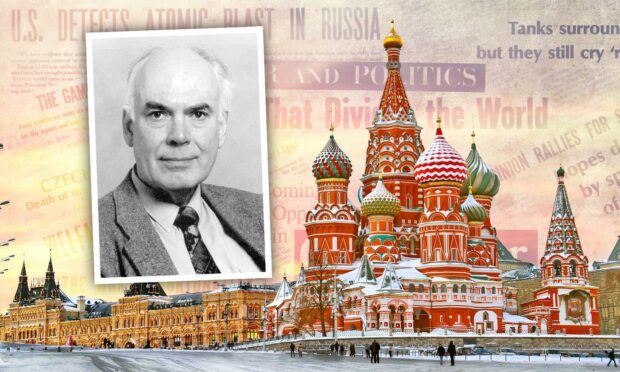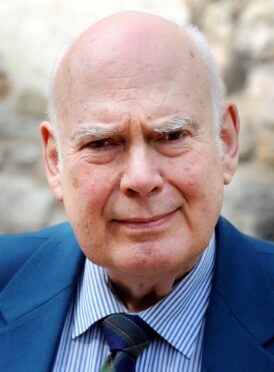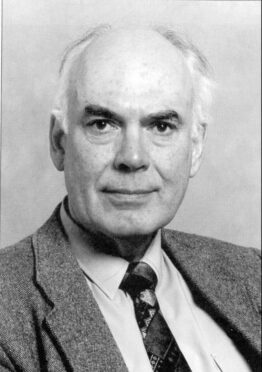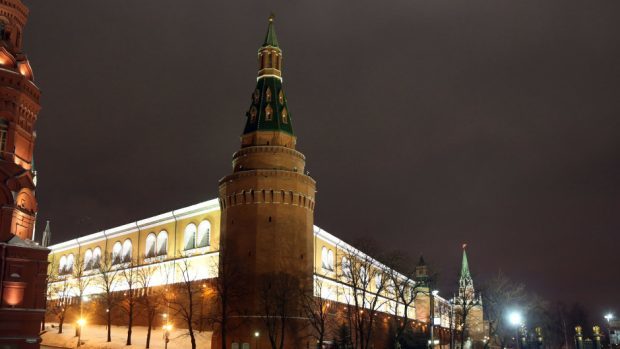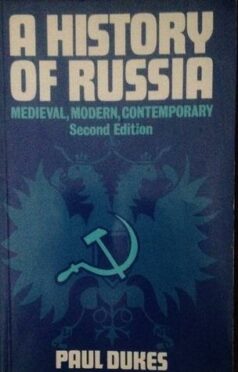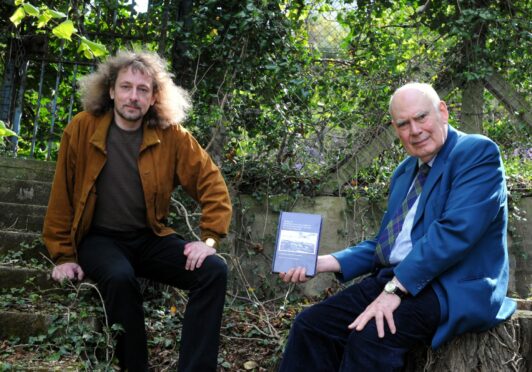Professor and author Paul Dukes, Russian history expert from Aberdeen University has died aged 87.
He was born in Wallington, Surrey, on 5 April 1934.
And was best known for his many works on Russian history.
Married to Cath and father to Daniel and Ruth, he hid his formidable knowledge behind a quiet modesty.
Scottish Russian connections
Dukes published work on a range of subjects.
Topics included Europe, Manchuria and the Superpowers.
But he had a special interest in connections between Scotland and Russia.
Murray Frame was the professor’s friend and former student.
He said: “Professor Dukes possessed a remarkable breadth of historical vision.
“And it was alongside a rare ability to distil enormous amounts of information into accessible yet thought-provoking studies.”
Cambridge educated
Dukes studied History at Peterhouse, Cambridge from 1951 t0 1954.
His primary focus was in American history and he pursued this further at the University of Washington.
An MA thesis on American colonial history followed.
National Service in Fife
During national service he learned Russian at the Joint Services School for Languages in Crail, Fife.
Then, between 1958 and 1959 he taught American history at the University of Maryland in France and Germany.
However, this was alongside a doctorate with the School of Slavonic and East European Studies in London.
A move to Aberdeen University
In 1964 Dukes moved to Aberdeen.
He remained there – aside from visiting Auckland (1974) and Cornell (1988) – for the rest of his life.
In the 90s he directed the Aberdeen Centre for Russian, East and Central European Studies.
No rest in retirement
In 1999 he retired and became a fellow of the Royal Society of Edinburgh.
However, retirement didn’t mean rest.
Murray added: “He still made frequent visits to Russia.
“Travelling to Moscow, St Petersburg, Orel and Ryazan amongst others.
“And at home, he was a regular host and guide to dozens of guests from Russia, the former USSR and beyond.”
Books and publications
His first book, Catherine the Great and the Russian Nobility was released in 1967.
The following year, Dukes presented the inaugural paper to the first meeting of the Study Group on Eighteenth-Century Russia.
And he remained a regular contributor to the group and its annual conferences.
A Russian history expert
Dukes was considered an authority on 17th and 18th century Russia.
This was cemented by his work in the Longman History of Russia series.
‘The Making of Russian Absolutism, 1613-1801’ stressed the importance of Peter the Great’s predecessors to modern Russia.
And Dukes ability to bring a global perspective to Russian history was an approach that became a hallmark of his work.
Innovative perspective
“Russia, he insisted, was an integral part of world history.
“It was not a country to be considered in isolation, as it so often was,” added Murray.
This approach was reflected in a series of studies comparing USA and Russia.
These include The Emergence of the Super-Powers (1970) and The Last Great Game: USA versus USSR (1989).
As well as The Superpowers: A Short History (2000) are examples.
Later works
Dukes wrote other books including October and the World: Perspectives on the Russian Revolution (1979).
And also World Order in History: Russia and the West (1996).
A Special Relationship
His close interest in the history of connections between North-east Scotland and Russia resulted in a series of articles and a book-length study.
Called Stuarts and Romanovs: the Rise and Fall of a Special Relationship (2009) it was co-authored by Graeme P Herd and Jarmo Kotilaine.
Professor Dukes also helped publish the diary of Patrick Gordon of Auchleuchries.
Gordon was a leading general of Peter the Great.
This book was edited by Dr Dmitry Fedosov.
History IS science
Dukes insisted that history should be considered a scientific discipline.
Therefore, if carefully handled, it could help to tackle the world’s many problems.
This was perhaps most evident in Minutes to Midnight which touched on the climate crisis.
An inspiring man
He was a long-standing member of the History Today Editorial Advisory Board.
And a member of the International Commission on the History of the October Revolution.
He was a friend of the late Aberdeen lecturer Jean Houbert.
And both men were part of an Aberdeen University ‘curry club’.
Cricket and football also played a part in his life.
With Aberdeen and Crystal Palace being his teams of choice.
Murray concluded: “His kindness, generosity, hospitality and sense of humour will continue to inspire everyone who knew him. ”
The family’s announcement of his death can be read here.
